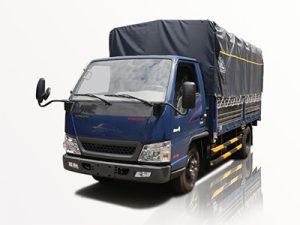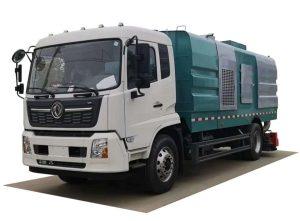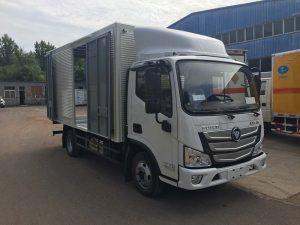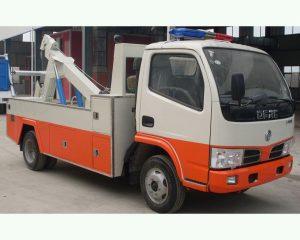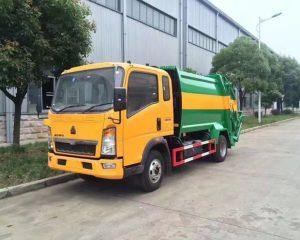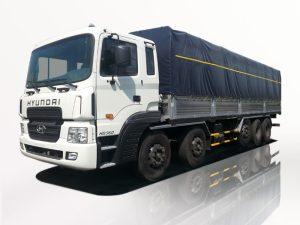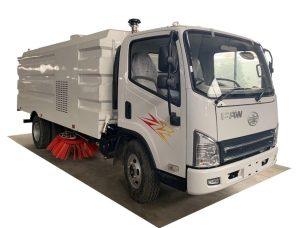Monday to Saturday - 8:00 -17:30
Revolutionizing Transportation: The Rise of Electric Chinese Trucks
Introduction
The trucking industry is undergoing a dramatic transformation with the introduction of electric vehicles, and China is at the forefront of this revolution. Electric Chinese trucks are redefining logistics, offering sustainable alternatives that promise to reduce emissions and operational costs. As cities grow and environmental concerns intensify, the demand for electric trucks is expected to soar. This article delves into the features, benefits, and future of electric Chinese trucks, making it a must-read for anyone involved in logistics, transportation, or sustainability.
Understanding Electric Trucks
What Are Electric Trucks?
Electric trucks are heavy-duty vehicles powered entirely or primarily by electric energy stored in batteries. This differs from traditional trucks that rely on internal combustion engines fueled by gasoline or diesel. Electric trucks often feature innovative designs, advanced technology, and a focus on sustainability.
The Types of Electric Trucks
- Battery Electric Trucks (BETs): These are powered solely by electric batteries and produce zero emissions while operating.
- Plug-in Hybrid Electric Trucks (PHETs): These combine electric power with a traditional fuel source, allowing for greater flexibility and range.
- Hydrogen Fuel Cell Trucks: Although less common, these trucks generate electricity through a chemical reaction between hydrogen and oxygen, producing only water as a byproduct.
The Electric Truck Market in China
Current Landscape of the Market
China is the largest market for electric vehicles (EVs) globally, and electric trucks are no exception. Local manufacturers and international companies alike are seizing opportunities to innovate and expand their electric truck offerings in China. The market is characterized by rapid growth, with government incentives, subsidies, and infrastructure improvements propelling the adoption of electric trucks.
Leading Manufacturers of Electric Chinese Trucks
| Manufacturer | Notable Models | Key Features |
|---|---|---|
| BYD | Qin, T5 | High range, advanced battery technology |
| SAIC Motor | RX5, E300 | Strong performance, smart connectivity |
| Foton | Aumark, View | Durability, cargo capacity |
| Geely | GEMINI | Innovative design, affordability |
Government Policies Promoting Electric Trucks
The Chinese government has implemented several policies to promote the adoption of electric trucks. These include significant subsidies, tax incentives, and investments in charging infrastructure. Such initiatives lower the total cost of ownership and encourage logistics companies to switch to electric solutions.
Advantages of Electric Chinese Trucks
Environmental Benefits
One of the major advantages of electric trucks is their reduced environmental footprint. Operating on electricity, they contribute significantly to lowering greenhouse gas emissions and decreasing air pollution in urban areas.
Cost Efficiency
Electric trucks can offer lower operating costs compared to traditional diesel trucks. These savings come from reduced fuel costs, less maintenance due to fewer moving parts, and various government incentives. To illustrate, here is a comparison of operating costs between electric and diesel trucks:
| Cost Type | Electric Truck | Diesel Truck |
|---|---|---|
| Fuel Cost per Mile | $0.10 | $0.40 |
| Maintenance Cost per Mile | $0.05 | $0.15 |
| Insurance Costs | $1,000/year | $1,200/year |
Enhanced Performance
Electric motors deliver instant torque, resulting in faster acceleration and improved performance in varying terrains. This makes electric trucks ideal for urban logistics where quick deliveries are essential.
Challenges Facing Electric Truck Adoption
Infrastructure Limitations
Despite their advantages, the widespread adoption of electric trucks is hampered by limited charging infrastructure. Logistics companies often fear downtime due to charging needs, which affects delivery schedules.
Range Anxiety
Many fleet operators worry about range limitations on electric trucks. Although advancements have been made, electric trucks generally have a shorter range compared to traditional trucks, posing challenges for long-haul transportation.
Battery Life and Replacement Costs
The lifespan and replacement cost of batteries can deter businesses from investing in electric trucks. Battery technology is improving, but the initial investment can still be significant.
Practical Tips for Transitioning to Electric Trucks
Assessing Business Needs
Before transitioning to electric trucks, logistics companies should evaluate their specific needs, including routes, load types, and delivery schedules. Understanding operational requirements will enable informed decisions on truck models and configurations.
Engaging with Fleets and Suppliers
Building relationships with manufacturers and fleet suppliers can provide valuable insights into the best electric truck options available. Attending industry trade shows and seminars can also offer networking opportunities and access to the latest technologies.
Calculating Total Cost of Ownership
Potential buyers should analyze the total cost of ownership (TCO) of electric trucks versus traditional options. This calculation includes initial costs, expected savings, maintenance, and operational efficiencies over time. A detailed TCO model can support investment decisions.
The Future of Electric Chinese Trucks
Technological Innovations on the Horizon
The future of electric Chinese trucks lies in technological innovations such as improved battery technology, autonomous driving features, and smart fleet management software. Research and development in these areas are expected to yield trucks that are even more efficient and user-friendly.
Global Influence and Exports
Chinese manufacturers are not only focusing on the domestic market but are also expanding exports to other regions. Following the global trend toward sustainable transportation, electric trucks from China are likely to make significant inroads into international markets.
Frequently Asked Questions (FAQ)
1. What are the main advantages of electric Chinese trucks compared to traditional trucks?
Electric Chinese trucks offer lower emissions, reduced fuel and maintenance costs, and enhanced performance due to instant torque delivery.
2. How far can electric trucks typically travel on a single charge?
The range varies by model, but many electric trucks have a range between 150 to 300 miles per charge, suitable for urban delivery routes.
3. Are there any government incentives for purchasing electric trucks in China?
Yes, the Chinese government provides various subsidies and tax incentives to encourage the adoption of electric vehicles, including trucks.
4. What challenges do companies face when adopting electric trucks?
Challenges include infrastructure limitations, range anxiety, and concerns over battery life and replacement costs.
5. What is the expected future of electric trucks in China?
The market for electric trucks in China is projected to grow significantly, with advancements in technology and increasing government support paving the way for broader adoption.
6. How can businesses effectively transition to electric trucks?
Businesses can transition by assessing their specific needs, engaging with suppliers, calculating TCO, and staying informed about technological innovations.


